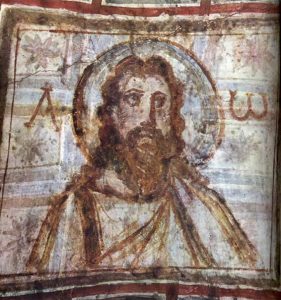 Question: A man who told me that Jesus’ image is based on that of Cesare Borgia. The problem with that statement is that Cesare Borgia lived in 15th century Italy. Thoughts?
Question: A man who told me that Jesus’ image is based on that of Cesare Borgia. The problem with that statement is that Cesare Borgia lived in 15th century Italy. Thoughts?
The claim that Jesus’ image is based on Cesare Borgia is historically and factually flawed. The notion that depictions of Jesus are modelled after Cesare Borgia (1475–1507), the son of Pope Alexander VI, originates from a combination of anti-Catholic rhetoric, Renaissance conspiracy theories, and later pseudo-historical narratives—especially popularised in fringe circles and some modern polemical media. It has no grounding in actual art history, theology, or reputable historical documentation. If the person who told you that is a theologian, then his credentials ought to be called into question.
Continue reading
 Question: Is Tobit, Judith, additions to Esther and Daniel, 1 and 2 Maccabees, Wisdom of Solomon, Sirach, Baruch, Prayer of Manasseh and Josephus’ Wars of the Jews part of the Orthodox canon? Were they part of the Jewish Bible? And someone told me these books were never in the King James Bible. Is there any real reason to read these books?
Question: Is Tobit, Judith, additions to Esther and Daniel, 1 and 2 Maccabees, Wisdom of Solomon, Sirach, Baruch, Prayer of Manasseh and Josephus’ Wars of the Jews part of the Orthodox canon? Were they part of the Jewish Bible? And someone told me these books were never in the King James Bible. Is there any real reason to read these books?